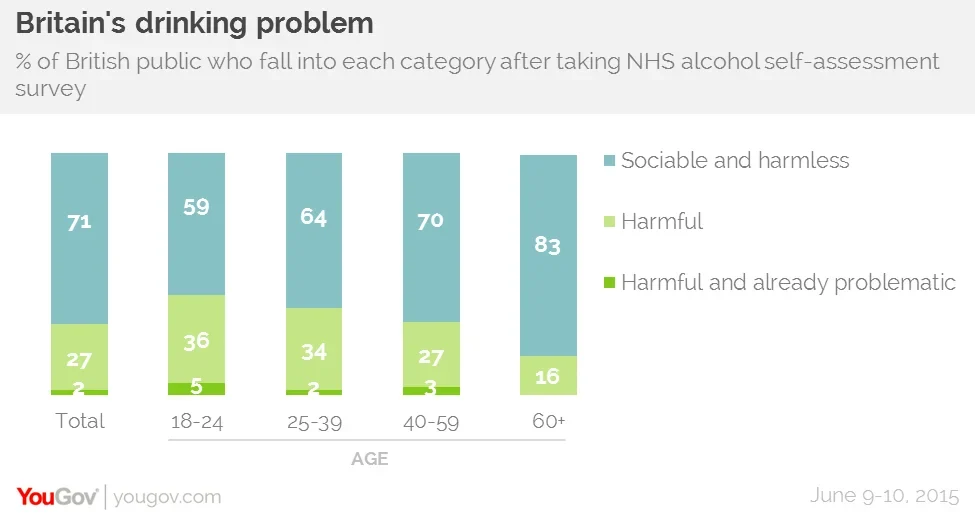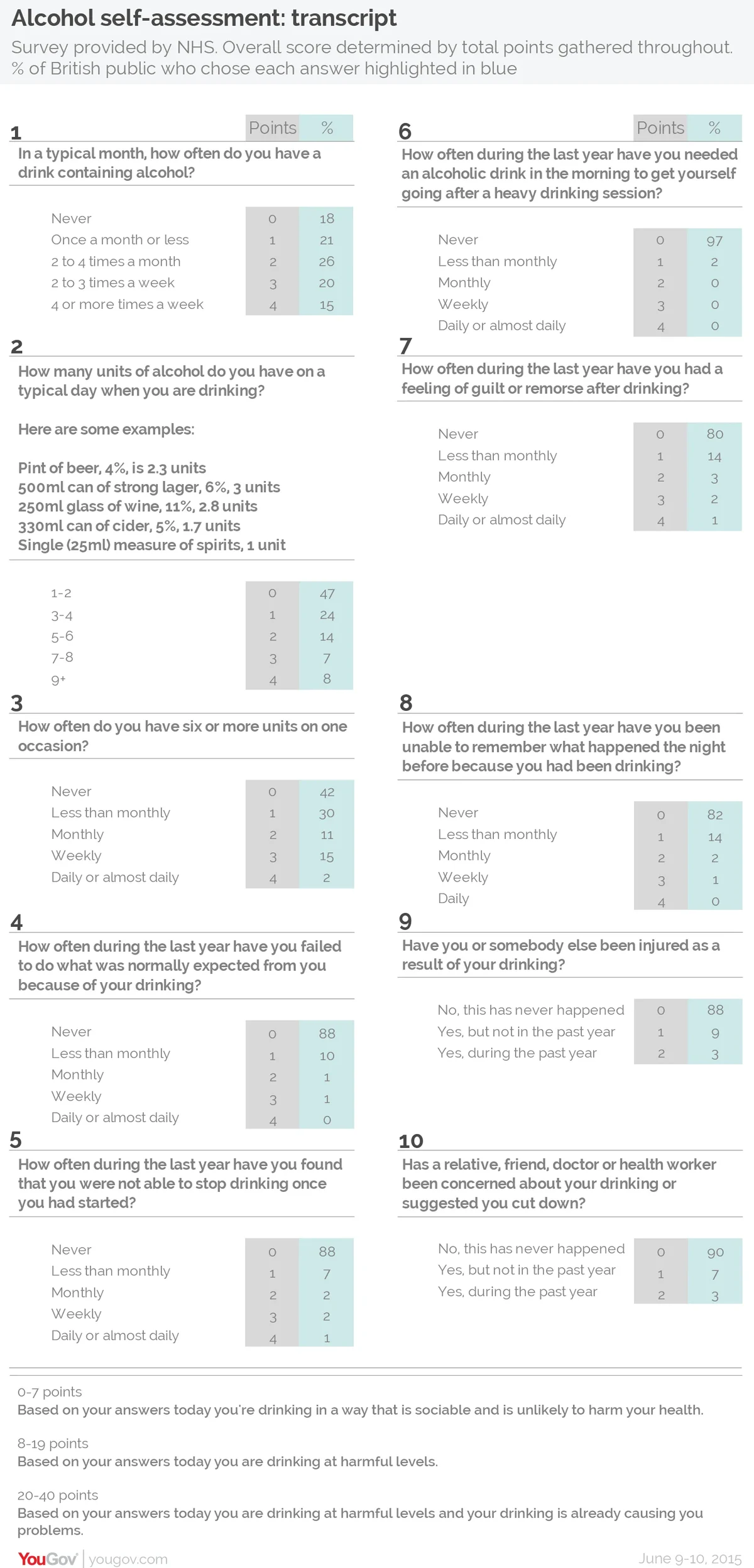Four in ten young people would be classified using the NHS's assessment as 'drinking at harmful levels' – as would 36% of 25-39 year-olds
Alcohol use among young people in Britain is coming down, but only this week were there reports of drunken young revellers flouting a street drinking ban in Magaluf, causing trouble and becoming ill. While older people may not be binge drinking there are concerns they are ignoring the risks associated with drinking every day.
When you go into the doctors to register or for a checkup your GP may ask you about your drinking, at which point they might give you a quick survey to fill out to help them assess your health risk. YouGov has posed this standard survey to a representative sample of the British public, revealing that 29% of the general population are drinking at 'harmful' or 'harmful and already problematic' levels – the NHS's own wording.

Depending on the number of points you score in the survey, you get assigned a health risk category. Among young 18-24 year-olds, over a third (36%) are in the middle category, which warns that the "risk of developing a serious illness is higher than non-drinkers", while 5% are in the top category – "your body has probably suffered some damage already, even if you’re not yet aware of it."
Only the bottom category is deemed safe. The NHS state that if you receive this score then "As long as your drinking does remain within recommended levels, you are considered a 'lower-risk' drinker as there is only a low risk that the way you drink will contribute to future health problems." 80% of women are in this category, but only 62% of men.
Of course there are problems with this approach – it may be that people under-report their own drinking levels or find it hard to keep track. A study by UCL in 2013 found that almost half of alcohol sales were unaccounted for in consumption figures given by drinkers, meaning that as many as three in four British people could be drinking above the recommended daily limit. You can take the test yourself, and compare your answers to the public's, below:

PA images







